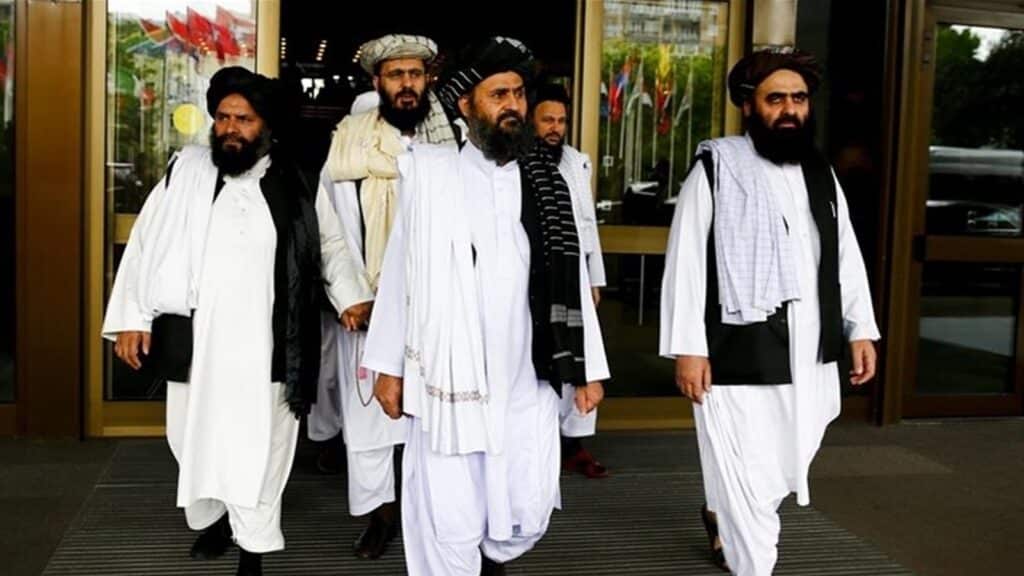Afghanistan’s Taliban authorities marked the fourth anniversary of their takeover on Friday, clinging to Russia’s recognition as their first diplomatic victory, while millions of Afghans continue to suffer under repression, poverty, and international isolation.
In Kabul, helicopters showered flower petals over the capital to glorify the Taliban’s August 15, 2021 seizure of power. Fighters and supporters waved black-and-white “Islamic Emirate” flags from trucks and rickshaws, some even brandishing yellow jerry cans — grim reminders of the homemade bombs used in their insurgency.
Unlike last year’s military parade at Bagram airbase, no such show of force was staged this time. Instead, hundreds of men gathered at the Loya Jirga Hall to hear Taliban ministers praise their regime.
Supreme Leader Hibatullah Akhundzada, who rarely leaves his Kandahar stronghold, skipped the event. In a statement read by his spokesman, he boasted that Afghans had been “saved from corruption, oppression, and looting” under Taliban rule — claims starkly contradicted by daily realities of unemployment, hunger, and collapsing freedoms.
For ordinary Afghans, celebration was mixed with despair. In Jalalabad, farmer Zabihullah admitted pride in the Taliban takeover but begged the authorities to tackle the economic crisis: “Because of unemployment, poor Afghans are leaving the country. Some die, some are detained — it is chaos.”
The Taliban government has become a symbol of repression, particularly for women and girls, who face what the United Nations calls “gender apartheid.” Women are banned from education, most jobs, parks, gyms, and even from travelling without a male guardian. The International Criminal Court has issued arrest warrants for two senior Taliban leaders over crimes against humanity for their persecution of women.
Despite global condemnation, the Taliban clings to external lifelines. Russia became the first country to formally recognise their administration in July, while China, Qatar and several Central Asian states maintain ties. Western nations, though publicly critical, continue quiet talks in Kabul, often prioritising security and migration concerns over human rights.
Inside the country, there is little room for dissent. Independent media are silenced, activists persecuted, and millions expelled from neighbouring states have only deepened the humanitarian crisis.
Women’s rights group RAWA slammed any engagement with the Taliban, accusing them of “destroying the last vestiges of our people’s basic rights.” UN-appointed experts echoed this, urging the world not to normalise ties with “a violent and authoritarian regime operating without legitimacy.”
As Taliban leaders celebrate with flower petals in the skies of Kabul, Afghans on the ground remain trapped in poverty, repression, and fear — four years into a rule that shows no sign of easing its grip.





